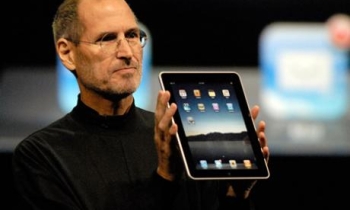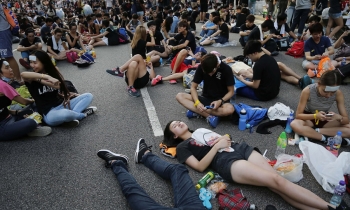TOKYO, Oct. 7 (UPI) -- Using newspaper articles on the Internet without permission is against the law, or so a Japanese court officially ruled Thursday. That finding may well have long-term consequences on how the news is distributed on the World Wide Web.
The case against Digital Alliance, a small Web provider, was brought forward by the Yomiuri Shimbun, Japan's most widely-read newspaper, which boasts the largest number of subscribers than any other daily in the world.
The daily first brought forward the case in December 2002 to the Tokyo district court but lost in March 2004 on grounds that anyone with Internet access can already read some of the Yomiuri's content for free.
This time around, though, the newspaper brought the case to the intellectual-property high court, which is a branch of the Tokyo high court that specializes in copyright and other intellectual property cases, and won. In its ruling favoring the media giant, Judge Tomokatsu Tsukahara stated that newspapers are produced "with great labor," adding that using much-thought-out headlines and news content without permission is "unforgivable." He also pointed out that the end product that was put up on newspaper Web sites was a result of a concerted effort "that needed to be protected by law."
In the first-ever Japanese trial that found a company guilty of using Internet content without permission, the court fined the Kobe-based Internet company about $2,000 as well to be paid in damages.
Through its Web site, Digital Alliance has provided one-line news stories to its information Web site called Line Topics by using headlines from other media Web sites, including the Yomiuri, without permission or paying a fee. The Yomiuri claimed Digital Alliance had been lifting headlines from its Web site for at least the past two years.
In response to the ruling, the Yomiuri said it welcomed the judge's decision and added that the latest result should have a significant impact on how news is distributed on the Internet in the future. Digital Alliance, on the other hand, merely stated that it was still considering a response to the initial ruling by the legal authorities.
In the near term, the ruling is unlikely to have any major impact on the Yomiuri itself, given that in addition to its flagship newspaper the daily owns a national television network, a major baseball team and other sizeable assets. In short, $2,000 in compensation is small change for such a media giant.
For a small company like Digital Alliance, however, the financial penalty and the resulting negative publicity could well crush it, according to industry analysts. Moreover, they broadly agree that the trial is likely to have a significant impact on the news industry on the Internet.
Financial daily Nihon Keizai Shimbun, for instance, reported that the latest ruling has finally made clear that even news headlines can be regarded as products made by media groups and thus need to be protected, even if they are readily available to anyone who logs onto the World Wide Web for free.
Nevertheless, the judge maintained that protecting intellectual property on the Internet was still subject to discussion, given that news headlines were not specifically protected under the national copyright law. Indeed, the biggest source of concern for the court appeared to be the fact that Digital Alliance was profiting from using the Yomiuri's content without permission. As a result, even in its ruling against the Internet company the court did not instruct Digital Alliance to pull out the Yomiuri's headline news from its Web site altogether.
Meanwhile, such legal disputes are far from unique to the Yomiuri and the Japanese courts. Earlier this year French news service Agence France-Presse charged Internet search engine Google with illegally using its stories on Google's news Web site without permission or payment. The case is still in dispute in the U.S. court.









